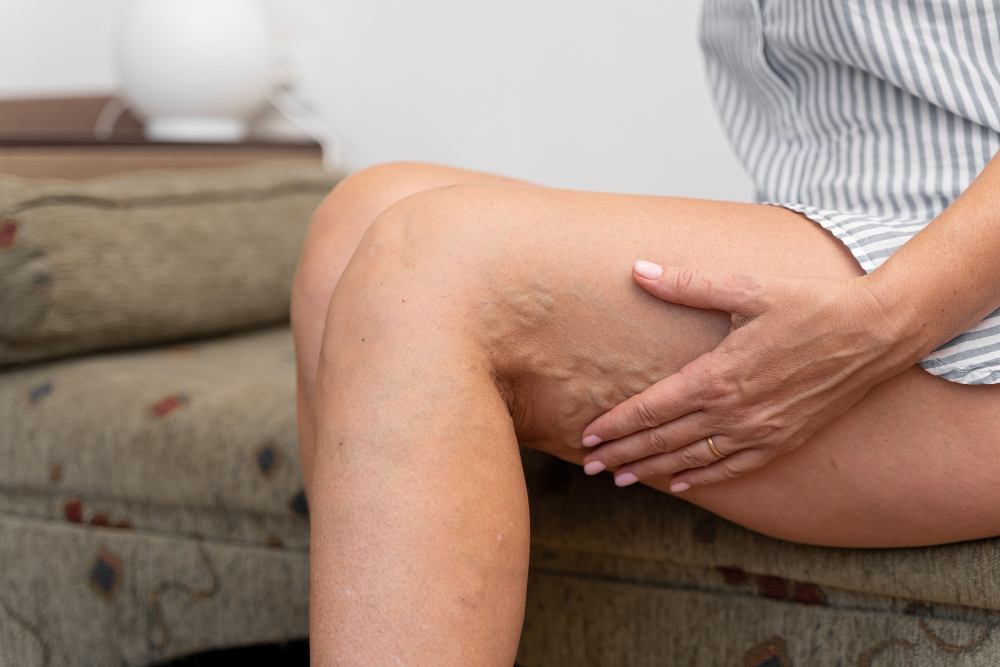Menu
- Home
- Treatments
- Our Providers
- About Us
- Patient Info
- Testimonials
- Locations
- Blog
- Financing
- Contact Us
- Home
- Treatments
- Our Providers
- About Us
- Patient Info
- Testimonials
- Locations
- Blog
- Financing
- Contact Us

Your skin is the largest organ of your body, and it often reflects the health of your internal systems. When it comes to vein diseases, one of the most common and uncomfortable symptoms experienced is itchy skin. Understanding the link between venous disease and itchy skin is important for recognizing early signs of vein problems and seeking appropriate treatment. At National Vascular Associates, we offer reliable vascular treatment and vascular care services for our clients. Continue reading to find out the reasons behind itchy skin and vein diseases and the importance of seeking professional help.

Venous disease primarily affects the veins, the blood vessels responsible for returning deoxygenated blood back to the heart. Conditions like chronic venous insufficiency or varicose veins occur when veins struggle to perform this task effectively, often due to weakened or damaged valves. As a result, blood may begin to pool in the veins, particularly in the legs, leading to increased pressure and swelling. This is a condition known as venous hypertension. Circulatory disruption can have a cascade of effects on skin health. The increased pressure in the veins forces fluid and proteins like fibrinogen out of the blood vessels and into the surrounding tissues. This leakage can lead to inflammation, swelling, and discomfort, often manifesting as itchy skin. The buildup of these substances can also hinder the flow of nutrients and oxygen to the skin, further worsening the issue.
As venous disease progresses, the continuous leakage of fluids and proteins into the tissues starts to take a toll on skin health. The accumulation of these substances leads to a condition known as venous eczema or stasis dermatitis, characterized by itchy, red, and inflamed skin. This condition often occurs in the lower legs, where venous pressure is typically highest due to gravity. The sustained lack of proper blood flow and nutrition to the skin can cause the skin to become thin, fragile, and prone to injury. Even minor scrapes or bumps can lead to more severe wounds that heal slowly or not at all. The chronic inflammation can also result in a change in skin color, turning it a brownish or reddish hue due to the breakdown of red blood cells that leak into the tissue.
If left untreated, the skin changes caused by venous disease can progress to more severe conditions. One of the most concerning developments is the formation of venous ulcers. These open sores occur when the skin becomes so weak and damaged that it breaks down, creating a wound. Venous ulcers are often painful and can be difficult to heal, requiring specialized treatment and care. The risk of infection is also higher with venous ulcers, making prompt and effective treatment critical. These ulcers are a clear sign that the underlying venous disease has reached an advanced stage and that comprehensive medical intervention is necessary to prevent further complications.
If you've noticed changes in your skin, such as persistent itching, redness, or the appearance of sores, it's important to seek professional medical advice from experienced vascular specialists. These symptoms could be indicators of underlying vein disease, and early intervention can prevent the progression to more serious conditions. At National Vascular Associates, we specialize in diagnosing and treating venous diseases. We use the most advanced techniques and technologies to deliver the most effective treatment outcomes. If you're on the lookout for reputable vascular surgeons or vascular specialists, contact our office today. We'll be happy to answer all of your questions and can schedule a consultation for vascular treatment.